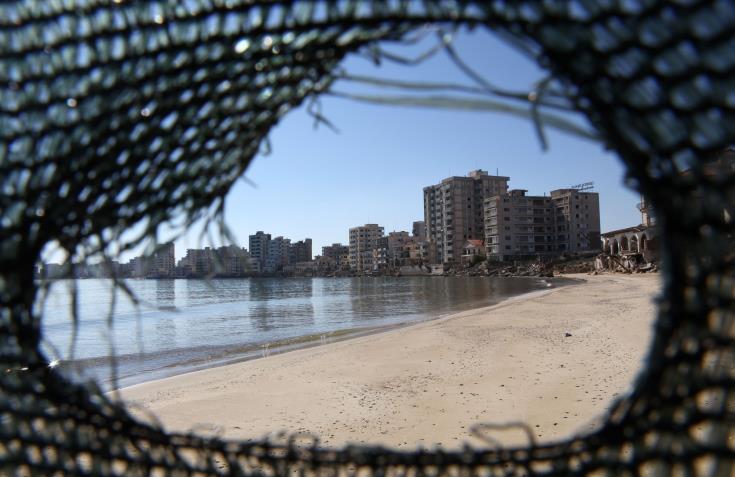
UN Secretary-General’s UNFICYP Report is unbalanced
Statement of Toumazos Tsielepis, Head of the Cyprus problem Office of the C.C. and member of the Political Bureau of AKEL
AKEL C.C. Press Office, 15th January 2015, Nicosia
 The Report of the Secretary-General of the United Nations on the renewal of the mandate of the UN Peacekeeping Force in Cyprus (UNFICYP) is unbalanced and provokes justifiable feelings of disappointment and anxiety. The Report includes several negative elements, highlighted by the way the provocative Turkish violations in the Exclusive Economic Zone (EEZ) of the Republic of Cyprus are presented, as well as the references to an isolation of the Turkish Cypriot community.
The Report of the Secretary-General of the United Nations on the renewal of the mandate of the UN Peacekeeping Force in Cyprus (UNFICYP) is unbalanced and provokes justifiable feelings of disappointment and anxiety. The Report includes several negative elements, highlighted by the way the provocative Turkish violations in the Exclusive Economic Zone (EEZ) of the Republic of Cyprus are presented, as well as the references to an isolation of the Turkish Cypriot community.
While Turkey has now surpassed every level of provocation by issuing and renewing a Navigational Telex (NAVTEX) which designates the southern regions of our EEZ, even opposite the free coastlines of the Republic of Cyprus, the UN Secretary-General is content with a mere recording of the fact, without exerting any criticism whatsoever. How is it possible that such a blatant violation of International Law, the UN Charter and the UN Convention on the Law of the Sea is taking place and the UN General-Secretary simply records the fact that a NAVTEX has been issued? Common sense says that this stand not only does not help towards defusing the crisis, but rather encourages Turkey to continue to provoke and brazenly violate fundamental principles of International Law.
Legitimate questions are also being provoked by the reference to a lifting of the isolation and to restrictions that impede the economic development of the Turkish Cypriot community and make it unable to participate effectively in an interdependent world. This extremely problematic phraseology did not exist in the Reports issued over the last several years. The only way for a definitive solution of this issue is the solution of the Cyprus problem and such inappropriate and unfortunate references only encourages separatist tendencies and operate among the Turkish Cypriots and Turkey itself as a counter-incentive for a solution.
It is now abundantly clear that the Cyprus problem is progressing on a dangerous path, something which AKEL has been tirelessly warning about for the last two years, always submitting specific proposals as to what should be done. It is imperative that initiatives are taken, even now, based on principles, but also capable either of forcing Turkey to defuse the crisis it itself has created, or at least to convince the international community to channel its efforts towards the right direction.




